FIRST IMPRESSIONS – Thanks to Magnew Kft. and Warhorse, we received a PS5 review code for Kingdom Come Deliverance II a full month before its release. This was typical for Sony years ago, but nowadays we only get codes from them a few days before release (or sometimes even after). So, it’s truly commendable and gratifying to receive an early version this far in advance. I adore medieval RPGs, and although I had plenty of reservations about the first installment, I was still eagerly anticipating the sequel… Whether the second part lives up to expectations, you’ll have to wait until February 3rd to find out from me (that’s when the embargo lifts). So, this article really only reflects my very first impressions, based on the game’s initial stages…
From the title, you might have guessed that Daniel Vávra’s creation didn’t completely win me over at first glance. I must emphasize again that while I… hmm… “liked” the first game, I wasn’t entirely satisfied with it either (so much so that I passed the review on to V). I should also add that I prefer third-person perspective in this type of RPG, but that’s not really my main issue with the first, or the second installment that’s coming out in less than a month.
A Completely Realistic Open-World Medieval RPG
But before I delve into the more subjective negatives, let’s look at what the game offers and its positive aspects. We return to Bohemia in 1403. Kingdom Come: Deliverance 2 is a direct continuation of the original game. We once again step into the shoes of Henry, who embarks on a peace mission from Skalitz with Hans Capon to gather support in the armed conflict against King Sigismund. As expected, things quickly take a turn for the worse due to a mysterious ambush, leaving Henry and Hans with an almost impossible task, caught in a web of enemies and political conspiracies.
The uniqueness of the Kingdom Come series lies in Warhorse Studios’ choice of a 100% historically accurate setting. Forget magic, dragons, and fantasy creatures – both the first game and the sequel are based on real events in 15th-century Europe. It’s a much grimmer title than, say, Baldur’s Gate 3, but that doesn’t mean it’s dull or bleak.
How does Kingdom Come: Deliverance 2 perform as a sequel? Exactly as we’d expect: it strives for continuity. If you’ve played the first game, you know exactly what to expect. A first-person open world awaits you, aiming for realism in both environment and gameplay. This is a grounded RPG that requires you to pay attention to elements you might overlook in other games.
The Combat System from the First Game Remains, with Added Complexity
One of the trademarks of the first game was its combat system. Far from being able to win by just mashing buttons and quickly striking, Kingdom Come (and thus the sequel) expects you to precisely control the direction of each blow. Clashes function as a kind of sword dance, where you have to consider not only the combos created by combining different directions but also block your rivals’ attacks and react to their counterattacks.
This results in a slower pace, but it makes every fight significant: a single wrong move can be fatal, so you have to take every action seriously. Fortunately, a wide arsenal of weapons is at your disposal, but you’ll need to learn how to use them.
Whether you like this combat system or not is a matter of personal preference. I’ve never been particularly fond of first-person RPGs, but if the controls aren’t overly complicated and the gameplay is fluid and enjoyable, like in Cyberpunk 2077, I can get used to it after a while. I had a harder time getting used to the rhythmic combat in the first Kingdom Come Deliverance. It’s perhaps slightly easier here, but in exchange, the current version is unfortunately still quite buggy. For example, the upward strike simply isn’t registered by the game on PS5, so much so that I couldn’t progress past the part where we were training with the legendary trainer in a gypsy camp. Consequently, I couldn’t complete the quest either.
Brutally Strong Realism, and “Cooking, but Smartly,” Where the Developers Have Gone Overboard
The way Kingdom Come’s skills and levels work is, on paper, truly the most logical thing I’ve seen: you learn and improve through practice. Want to become a master lockpicker? Then you have to pick a lot of locks. Want to use war hammers? Practice with them in battles. Want to improve your survival skills? Go on adventures! While this isn’t the first RPG to use this system, its effectiveness generally works well here, and Henry’s development feels completely organic.
However, the realistic rigor isn’t just present in combat and skills, but in all other game systems as well, and that’s where I feel the developers have gone too far. For example, if you want to make a potion, you not only have to collect the right plants but also go to an alchemist’s table, heat the water, grind the ingredients… and the list goes on.
And this is a bit much for me. The high level of realism is commendable, but when you have to scavenge for herbs to brew the potion needed to save the game (yes, you read that right: just like in the previous installment, you can only save the game by drinking a special schnapps), and then, when you finally have them, you have to meticulously fiddle with alchemy, which takes 15 minutes… Meanwhile, in most games (like The Witcher 3), you can do it quickly and logically, while it still remains complex but in an enjoyable way. I emphasize that this is subjective, but for me, this is maximizing unnecessary fussiness – all just to save your game. Luckily, the game autosaves in certain places, but it’s still too infrequent to avoid causing – for me – frustration with this “cooking, but smartly” mechanic.
In many ways, though, this high level of realism is truly enjoyable. You have to take care of your equipment, wash yourself so you’re not dirty and bloody, and consider that the people of Bohemia won’t be happy to talk to you if you approach them with a sword in your hand.
The game’s maps don’t feel like they’re made solely for the player, but rather like areas where people live, events happen, and rules must be followed. The game’s reputation system forces you to consider whether it’s worth breaking the law for profit – and the Bohemians don’t even have to see you commit a crime to be suspicious of you. You’re a stranger in these lands, and they’ll be distrustful of you at the first sign of suspicion.
“The Gypsy Camp Goes to Heaven”
That’s all well and good, but when I’m in the gypsy camp, after the chieftain has entrusted me with a tricky and extremely important mission: to find and save his lost daughter, whom he loves more than anything, I think, “Come on, at least let me eat from the freely available stew pot in the camp of these supposedly free-living and – supposedly – friendly nomadic gypsies, and let me lie down on the dirty rags in one of the tents to rest!” But no, the game follows its own rules so fanatically that when I committed these “heinous crimes” in the gypsy camp, the only way I could talk my way out of getting caught eating on the sly was to say that I’m a legendary “gourmet” who travels the country analyzing food and will spread the word about how well they cook here – which is utter nonsense in the case of a gypsy camp. But there was no excuse for the terrible “sly sleeping,” so I could either pay the hefty 27 gold pieces (!), get beaten to a pulp, or reload the save that the game luckily automatically made after the failed fencing training.
So, the game kind of forces you to constantly break what I think are ridiculously over-the-top realism and overly strict rules, making you a criminal, thief, and potentially a murderer if you get caught stealing or “sleeping illegally.” That’s why, after a cutscene in the first major city, I decided that even though it’s against the law, I’d have to steal a horse as a penniless beggar, otherwise I’d spend hours just walking (and looking for my lost dog, because that’s one of the first drawn-out, long quest lines). Luckily, they left the horses to graze freely, and no one saw me stealing one, even though an armed guard was supposedly walking around, and a peasant woman was hoeing nearby. Stealing the horse was surprisingly easy.
Find the Woman! And Your Dog, and the Alcoholic Hunters!
And speaking of quests, I wasn’t thrilled with them in the first part of Kingdom Come Deliverance either, even though missions are the heart and soul of a game. The very first part of the game is actually quite interesting from a story perspective (which I won’t spoil). After dramatic events, you find yourself stripped of everything and in rags in a village, first with Hans, and then continuing your adventures alone. This part of the game is genuinely exciting and intriguing. Later, however, the side quests become much more prominent and are shoved in your face much more than in, say, The Witcher 3, where they were also extremely unique, but here they’re unfortunately not – at least, I, a veteran gamer, don’t feel that way.
The aforementioned “find your dog in a long and, for me, over-the-top quest line,” or “find the gypsy chieftain’s daughter,” and among others, you also have to find the herbalist’s lost adopted daughter and the peasant woman’s lost alcoholic husband, who regularly passes out drunk somewhere in the forest during hunting trips. In finding the latter, his son was supposed to help, indicating where he might have gone, but I couldn’t find him around the house for the life of me, even though I searched everywhere. The funny thing is, I eventually stumbled upon the alcoholic hunter completely by chance while riding and exploring the area. He was yelling from the top of a tree to save him from a pack of wolves, after they had chased him up there. I didn’t have much choice because the wolves in question knocked me off my horse, and the game immediately autosaved (during the fall), which might sound good on paper, but even though I have a basic sword, I’m unable to kill the extremely aggressive, pack-hunting wolves with it – they’ve pushed the “realism” so far here that the sword is too weak of a weapon and doesn’t damage the bloodthirsty four-legged devils enough, who ended up slaughtering me after every reload. I get it: I should have arrived here with much better weapons, or perhaps a bow from a distance, but since I’m still a penniless vagrant, I don’t have such weapons or better armor, so I’ll reload a save later. But for now, this part has frustrated me so much that I’m taking a break from the game until maybe they fix the bugs or these game balance issues.
Bohemia, as I Love You?
It’s understandable – and less bothersome in the latter case – that regarding game balance and bugs, this version is still a bit rough around the edges a month before release – at least that’s what I experienced on PlayStation 5. Fortunately, the situation isn’t dire in terms of bugs, but stutters and graphical glitches do occur – thankfully, not nearly to the extent that STALKER 2 had at launch.
Perhaps I’ve painted a bit too negative a picture in this preview, but there’s no doubt that the player base that enjoys these difficult, ultra-realistic, and complex games will be satisfied despite its flaws and initial bugs. One thing is certain: the region of Bohemia is rich in content in many ways. While traveling, you stumble upon random events, countless NPCs await with long dialogues that give side quests, you encounter mini-games, and of course, there’s the campaign, which the developers say offers around 50-60 hours of gameplay.
During my wanderings in the Trosky region, I encountered everything: serious quests involving kidnappings and murders, as well as disputes between villages. I even met a man who mistook me for the Devil and very politely asked me to bring him luck… in winning a dice game. This world holds many stories for those who explore every square inch of the map.
Moreover, you can approach and solve these tasks in numerous ways. You can achieve your goals without fighting through dialogue, take advantage of the game’s systems, and even unlock multiple endings for the quests in front of you. In this, as well as in inventory and stats management, it’s clear that this is a full-fledged RPG.
The spirit of Kingdom Come: Deliverance remains intact in the sequel, but the passage of time is noticeable on a technical level. Warhorse Studios is pushing the limits of the CryEngine with this sequel, which arrives almost a decade after the original. The Bohemian landscapes have been recreated with stunning detail, and the density of all locations (forests, plains, interiors) easily creates the illusion that you are truly immersed in the world of the 15th century.
– Gergely Herpai “BadSector” –

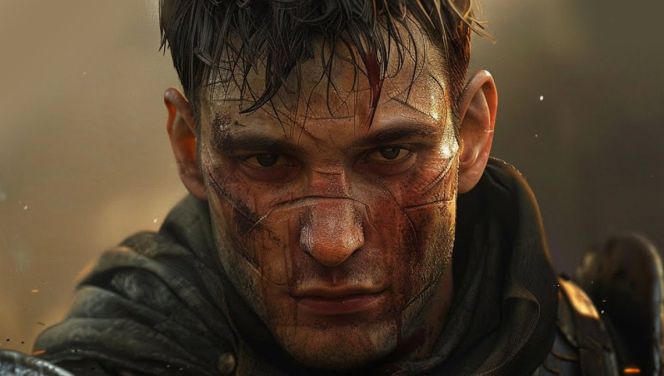
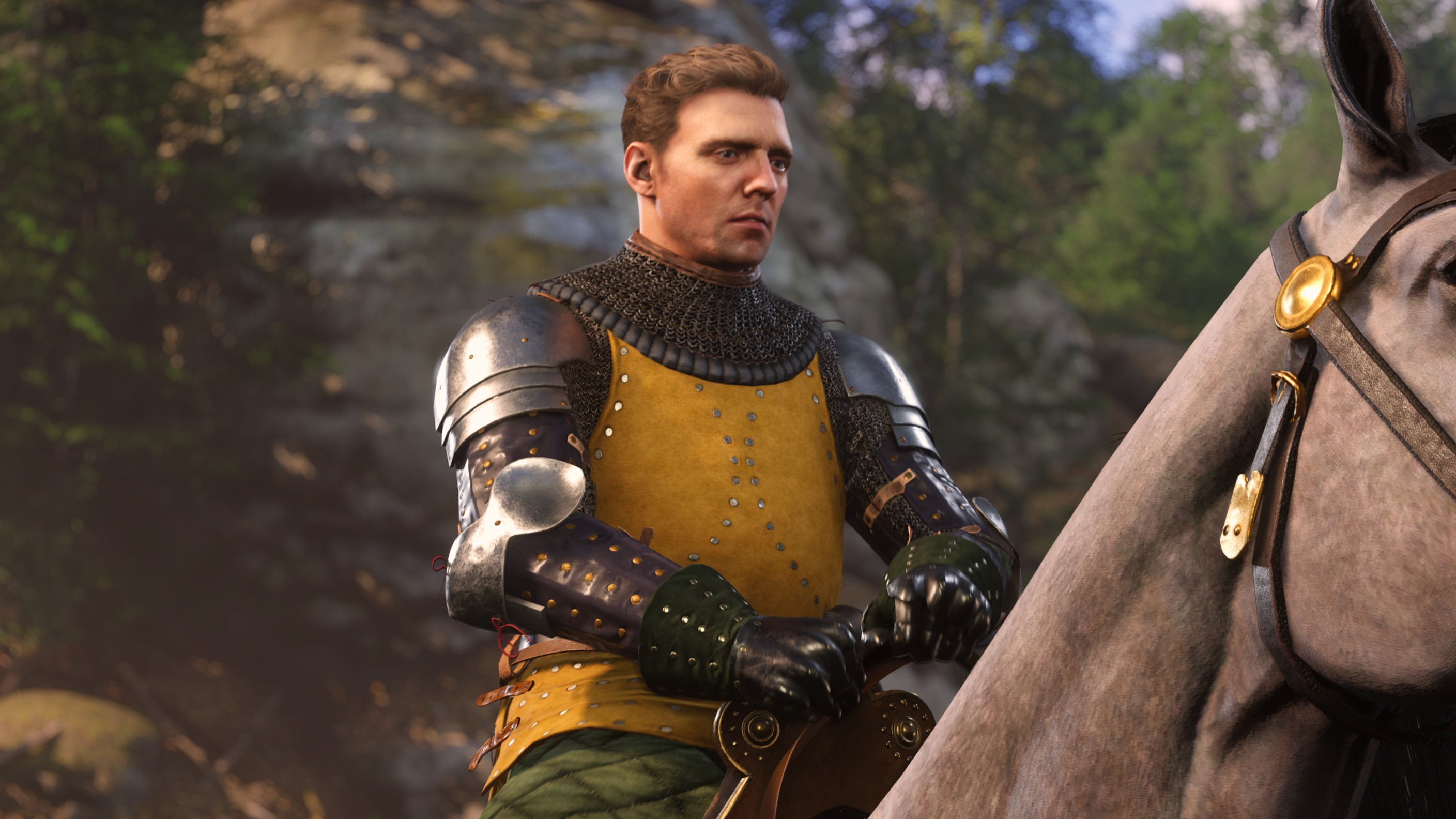
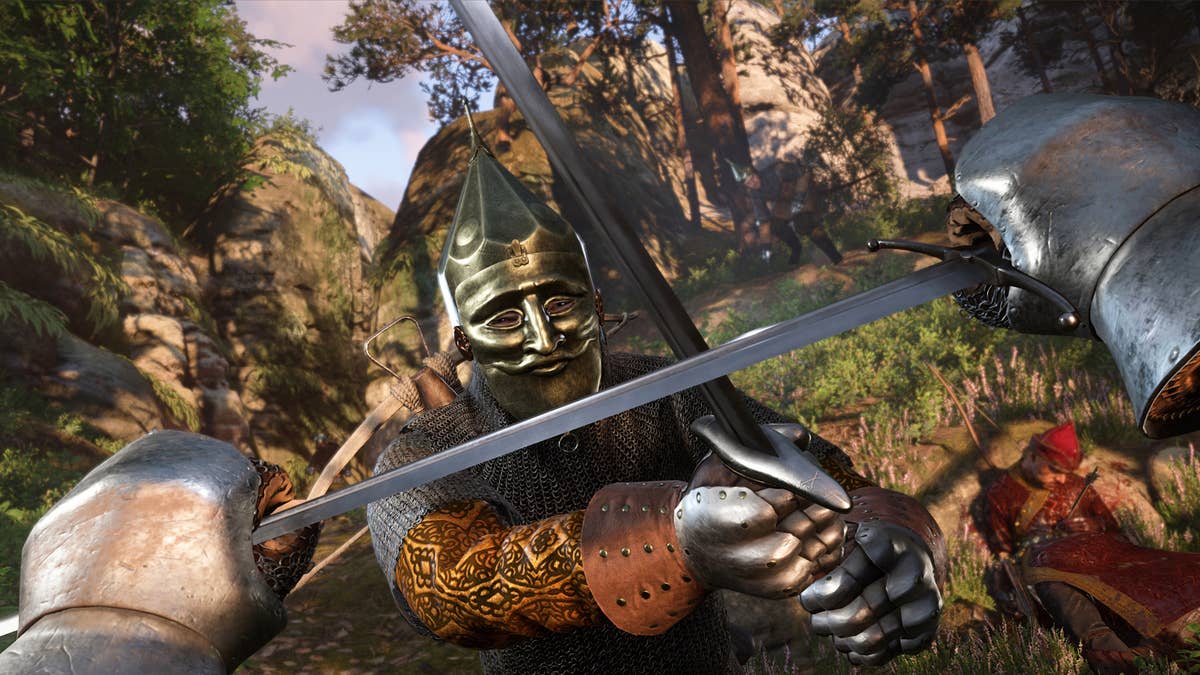
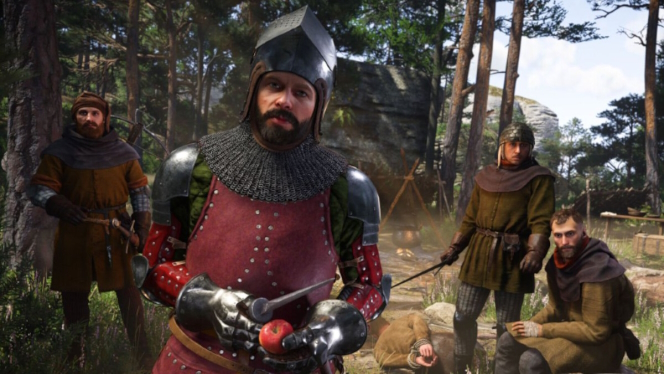

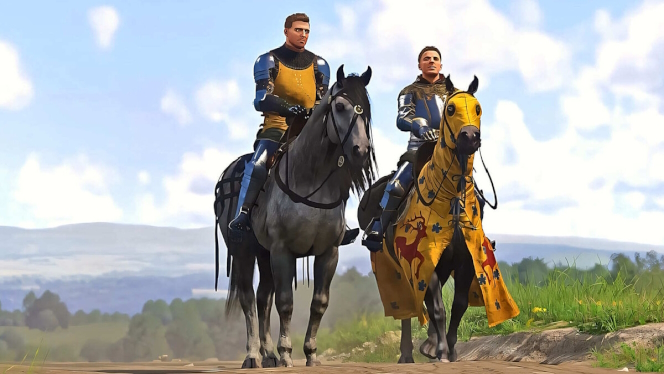

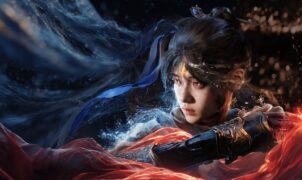












Leave a Reply